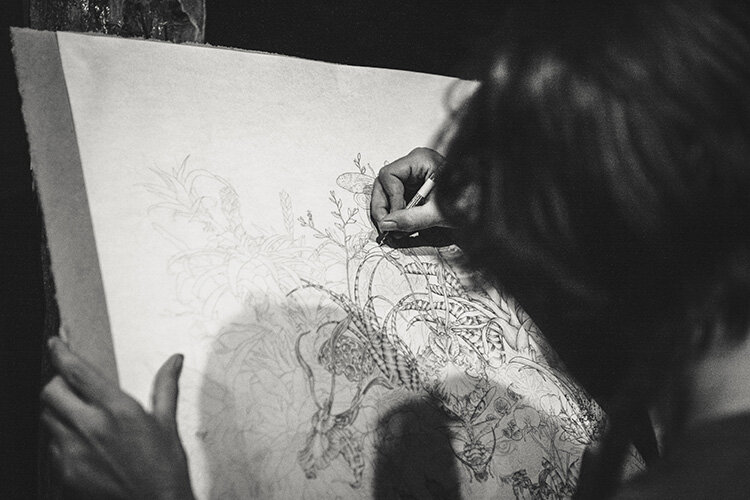Slow Learning
We’ve got something a little different lined up for the next four weeks, and while at first glance it might not seem to be too closely related to the practicalities of slow living, (Ben had to do a little convincing, if I’m being honest) anyone currently struggling with certain areas of slow living is going to benefit from it a lot. Me included!
So, the next few weeks we’re going to explore slow learning.
Growing up, being seen as a slow learner was a negative. It suggested there were things we struggled with, and that was something to be ashamed of. I am a very slow study myself. I take a long time to grasp a new idea or action, waiting until the heavy click of things falling solidly in to place before I can exclaim, “Ahh, I get it now.” The benefit to that is usually once I’ve got something, it’s well and truly got (gotted? gotten?).
What I’ve realised is that absorbing information is only part of the picture, and the experiments we ran in 2016 taught me that in order to actually learn, I needed to do. This is what’s called experiential learning and Ben and I talk about this in today’s episode.
One of the common obstacles people face in learning to slow down and simplify is the one-step-forward, two-steps-back dance that often accompanies it. There is so much information available for us as we try to establish what approach works for us, and often we simply immerse ourselves in as much of it as possible. The problems arise when either we don’t spend our time in the doing, or when we try to learn in a way that doesn’t work for us personally.
That’s exactly what I did when I first discovered simple living, and threw myself headlong in to the the archives of Zen Habits, Becoming Minimalist and Be More With Less. I tried learning as much as possible about becoming a minimalist, decluttering and letting go. But the problem was, I didn’t do much with that information. And when I did, the changes I made often wouldn’t stick.
I’ve realised this was because I was trying to learn everything, and often learn it in ways that didn’t come naturally to me.
This is why it’s so important to understand what kind of learner you are, and that’s what we’re going to focus the next few weeks of Monday shows doing.
Today, Ben goes through the three different types of learner (do you recognise yourself as one in particular?):
-
- Personal learner – every form of learning needs to be personalised to their unique needs and circumstances. The personal learner doesn’t want to learn unless it’s a challenge.
-
- Collaborative learner – learns through others and their actions. The collaborative learner critically analyses the behaviour of others and tailors that behaviour to themselves and their own situation. As a kinaesthetic learner, these people have to do in order to learn.
- Informal learner – will learn anywhere/anytime. Online learning is a great example of an informal learner and is in many ways opposite to institutionalised systems of learning such as degrees and other formal qualifications.
The key takeaway of this week’s episode is very simple. We’d like you have a think about the various types of learner and ask yourself which sounds most like you. After you know this, it will be easier to establish the strengths of that type of learning, as well as any potential pitfalls and how you may be able to bolster them using other strategies. From there, everything opens up!
——
Head over to iTunes to subscribe to the show and play the episode.
Or you can listen to the show directly, simply by hitting the Play button above. Enjoy!
——


